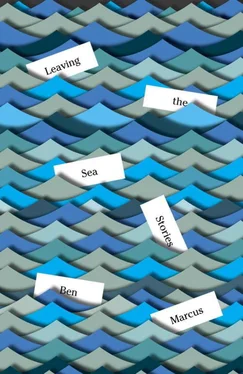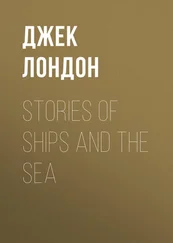Oh, right, he thought. This was one of those times when only fat men named Thomas were privileged to hear death sounds. Some special access was in play, but it didn’t feel exactly, uh, special. Times like these were Punishment Invention times. Thomas saw himself later that night, or as soon as he could square away the details and complete the domestic schedule with June and the child, sitting in a chair at home, pounding one of his hands with a mallet until it finally stopped bleeding and became smeared into the upholstery like gum. The goal was to move beyond the obvious and stereotypical pain of such, uh, appendage hammering, into the prolonged sweetness that came when one’s very nerve endings were doted on until they saw light and air for the first time. That will teach me, he thought. That will show me not to stand up and do anything or go anywhere. Next time you’ll think twice before being alive!
The colleague, no doubt, was not a connoisseur of the self-punishment, sad to think. This type of hygiene was foreign to her, no doubt. How did one even fraternize with people who could not entertain vivid scenarios of self-mutilation? How was the sexual act even possible if one’s partner could not entertain being crushed under a truck, even as a cathartic exercise?
What important piece of her brain was missing that deprived her of such, well, deeply necessary acts of physical editing ?
The colleague powered on at the coffee cart, doing God knows what. From behind she appeared like a giant storybook girl at a table of mind-blowing presents. It was amazing how a teaspoon of professional rank authorized people to dance in your face and publish their happiness with such free dispatch. Thomas guessed that this colleague was an associate something or other. If one day you weren’t hourly but salaried, suddenly you radiated joy like one of those children about whom it was politely said had yet to come into their own in terms of, uh, showing signs of an inner life. Stupid but happy was how he always saw it, as if there was a difference, and why not, since part of their brains had been sucked free with a crazy straw and everyone pretended the obvious imbecility was some kind of prototype maverick behavior not yet ratified by the schools. The goddamn careful language they used about kids who drooled in a puddle on the floor. And then to have an adult, the superior colleague, channeling this moronia, a kind of spokesperson for failure to thrive, even inside her smart pantsuit, which could only accomplish so much mitigation of the, the—he wanted to whisper the word out loud, stage-whisper it—so much mitigation of the retarded . The word should be spat, he thought, and spat at her, but that wasn’t going to quite convey what he was thinking, was it, and her formal attire was confusing things anyway. Pantsuit as softener of cretinism. Perhaps that was the solution to the clods of the world. Dress them up in business attire. Had she studied that behavior at a conservatory?
Thinking this through, watching the colleague attend to her beverage like it was her final act of love, Thomas wished he could say to himself that he’d reached his limit, that it was too much and so and so, and how could he ever, and oh my (the kind of language he loved to hobby with in private, in soliloquies of indignation), but he regularly found himself capable of bearing ever greater insults and grievances, as if he possessed a sort of highly stretchable orifice through which the transgressions of others readily flowed. He marveled at his tolerance for precisely this kind of massacre. He wanted to bow to the power of the colleague, a lady who could stay in character under even the most extreme forms of pressure. There was a fish he recalled with such accommodating features, a blobby kind that simply ate the mistakes of the sea, and yet he knew there was some kind of virtue, ecologically, to what this fish did. Or didn’t there have to be something good here?
When a species disfigures itself in order to conceal a conflict from its mate, turning itself inside out and soaking deeply in the toxins of a terrible dilemma, all the while shielding a loved one from a crisis, that’s called…Oh, who fucking knows?
This would be his role, and all blessings to the clarity that afforded. Thomas, meet Thomas, he wanted to say: You two should make love tonight. He did not enjoy, at least not fully or not without some regret, picturing himself getting bottomly impaled, but he worked these pictures up in any case, and they were among the more vivid of what he called his mule cartoons. Thomas as mule to the competent, confident, attractive overachievers, with a few middling stragglers as well, who might be surprised to learn that they had been cast as, well, as rapists, really, in Thomas’s overworked scenario machine, humping him until he wept, breaking him in half, drop-kicking him off a roof. They shucked his pants and stepped up to his area and they repeatedly defiled him. They shot him, they dumped him in the sea, they led him to alleys where they dug holes and sometimes scraped what was left of him into a pit.
There was an oeuvre of material in these mule cartoons, but no clear way to render it down so others could see it. How did one share such imaginings? Thinking himself dead was his special skill, he knew, and maybe the antidote was not to feature his own feelings so heavily, to accord them meaning and weight, since they didn’t officially matter (now there was a bit of parental advice he could juice: “No one has to know what you’re thinking,” a chestnut shared once by his mother after Thomas experimented with an afternoon silence project during what he called his junior year at home ), because in abstract terms what was so wrong with chancing into a coworker at the coffee cart— Hi there, Colleague! some finer version of Thomas might say—and, who knows, sharing a pretty intense bit of quickfire, meant to flush the groins with blood, misting a bit of sex into the air? There were worse places to meet, and couldn’t the coffee cart be the best location to lay waste to the awkwardness that interfered whenever Thomas began to smell the possibility of the good, craven congress with unhospitalized women the world had yet to fully pay him?
Never mind the logistics that would make such, hmm, congress unlikely. They were at work, they were fully dressed, they did not specifically know each other, they could not exactly go to his house, because even if Juney wouldn’t notice, well, the nurse certainly would. Now, if the colleague were hidden in a sack, for instance, and he lugged her into the house, the nurse would have to personally check the sack, which she would not, and Thomas might then wait for her to depart before releasing the colleague from the sack and, if necessary, working to revive her.
None of this would be very, ha ha, collegial, though, would it?
The coffee flushed into the colleague’s mug with the violence of an industrial toilet, and then she pivoted to the fixings table. It was a nimble move, adorned with a sweet little grace note that impressed Thomas. She was, in her way, sort of elegant, and the gesture suggested that even late in life they could have sex standing up against the closet door. Was there an overture here? A dip of her shoulder and a slight tilt in the hips, like a kind of curtsy. It was customary, of course, to respond to such flirtation. One flirted back. One did not look cross or bothered, and one certainly didn’t pretend not to notice that a clear message had been sent, because that suggested a radar-deficient head, a head rotted out and insensate. Not me. Not my head. He would be alive to the possibilities here. These were bridge gestures from the colleague. They resonated with aching desire. Or if they did not, they should, which is what mattered from a legal perspective, and he could now safely argue that she initiated the intimacy, sir . Was there a pose he could strike, so he might reflect his desire back to her and perhaps boost the abstract flirtation into actual congress? A conversion tool was needed. Somewhere a book might instruct him how to flip his mood and adapt. How quickly could a person, without having a stroke, shift from a feverish state of vicious resentment to a soft and vulnerable romantic coquetry?
Читать дальше












